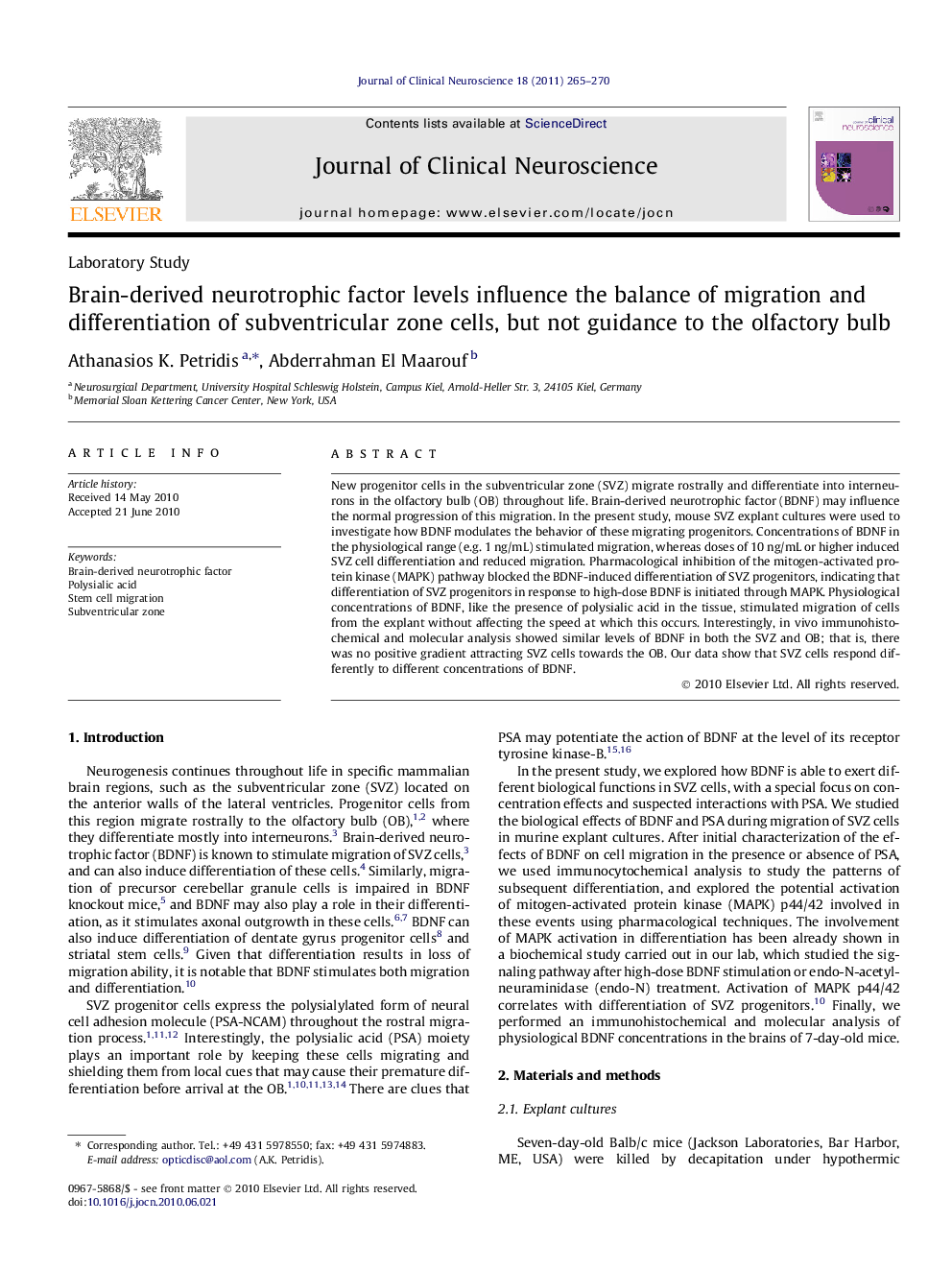| Article ID | Journal | Published Year | Pages | File Type |
|---|---|---|---|---|
| 3062064 | Journal of Clinical Neuroscience | 2011 | 6 Pages |
New progenitor cells in the subventricular zone (SVZ) migrate rostrally and differentiate into interneurons in the olfactory bulb (OB) throughout life. Brain-derived neurotrophic factor (BDNF) may influence the normal progression of this migration. In the present study, mouse SVZ explant cultures were used to investigate how BDNF modulates the behavior of these migrating progenitors. Concentrations of BDNF in the physiological range (e.g. 1 ng/mL) stimulated migration, whereas doses of 10 ng/mL or higher induced SVZ cell differentiation and reduced migration. Pharmacological inhibition of the mitogen-activated protein kinase (MAPK) pathway blocked the BDNF-induced differentiation of SVZ progenitors, indicating that differentiation of SVZ progenitors in response to high-dose BDNF is initiated through MAPK. Physiological concentrations of BDNF, like the presence of polysialic acid in the tissue, stimulated migration of cells from the explant without affecting the speed at which this occurs. Interestingly, in vivo immunohistochemical and molecular analysis showed similar levels of BDNF in both the SVZ and OB; that is, there was no positive gradient attracting SVZ cells towards the OB. Our data show that SVZ cells respond differently to different concentrations of BDNF.
